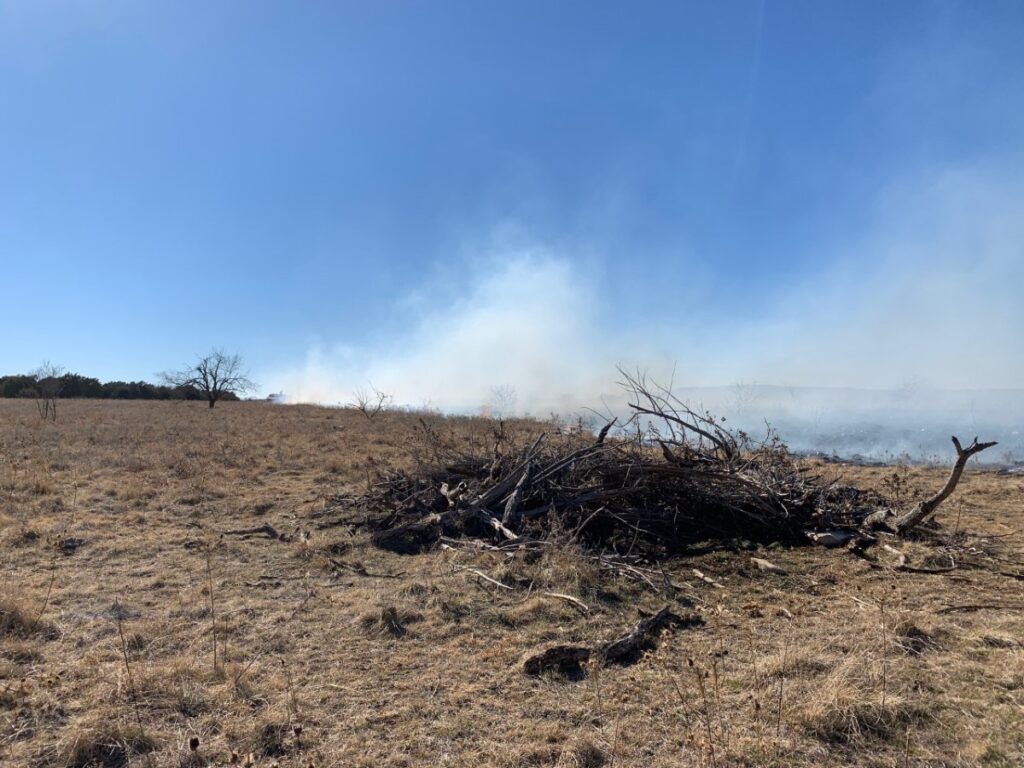Debris burning is intentionally burning vegetative material in a pile or in a metal burn barrel. Escaped controlled burns also contribute to unsafe debris burning. Any instance of fire intentionally applied to the landscape should be conducted as a prescribed fire by fire and fuel specialists.
County burn bans may reduce unsafe debris burning but a burn ban doesn’t have to be in effect for outdoor burning to be illegal or unsafe.
Negligently allowing your fire to escape onto someone else’s property is a Class C misdemeanor, punishable by a fine up to $500. Learn before you burn.
Before debris burning
- Check for and follow local bans on outdoor burning.
- Stay up to date on current wildfire potential.
- Search outdoor burning information for your area. Many cities and counties have restrictions or guidelines on what can be burned, do not allow burning within city limits, require a permit, and other policies.
- Ask your local officials if a community burn site is available. Community burn piles are prepared and monitored by the city, often with support from local fire departments.
- Avoid any outdoor burning if it is hot, dry, or windy.
- Check if weather changes are expected before igniting. Postpone if shifts in wind direction, high winds, or wind gust are in the forecast.
Debris burning area preparation
- Before starting the burn, establish a wide control line around the burn that is down to the bare mineral soil. It should be at least 10 feet around the burn pile or barrel.
- Avoid burning under overhead obstructions such as trees, powerlines, and structures.
- Keep burn piles small and manageable. No more than four feet wide is best.
- If using a burn barrel, ensure it is a metal barrel in good condition, without any rust holes. Have three evenly spaced vents in the side of the barrel near the bottom and back them with a metal mesh screen to allow for air flow and better consumption of materials. Place a metal screen on the top of the barrel with holes no larger than 5/8 inches to reduce embers from escaping.
During debris burning
- Do NOT attempt to burn aerosol cans. They can explode when heated and lead to flying materials causing injuries and potentially igniting nearby vegetation.
- Never leave the burn pile or burn barrel unattended. Stay with it at all times until it is completely extinguished.
- Keep a steady water source and hand tools nearby in case the fire attempts to spread outside your containment line.
- When possible, choose alternatives to burning.
